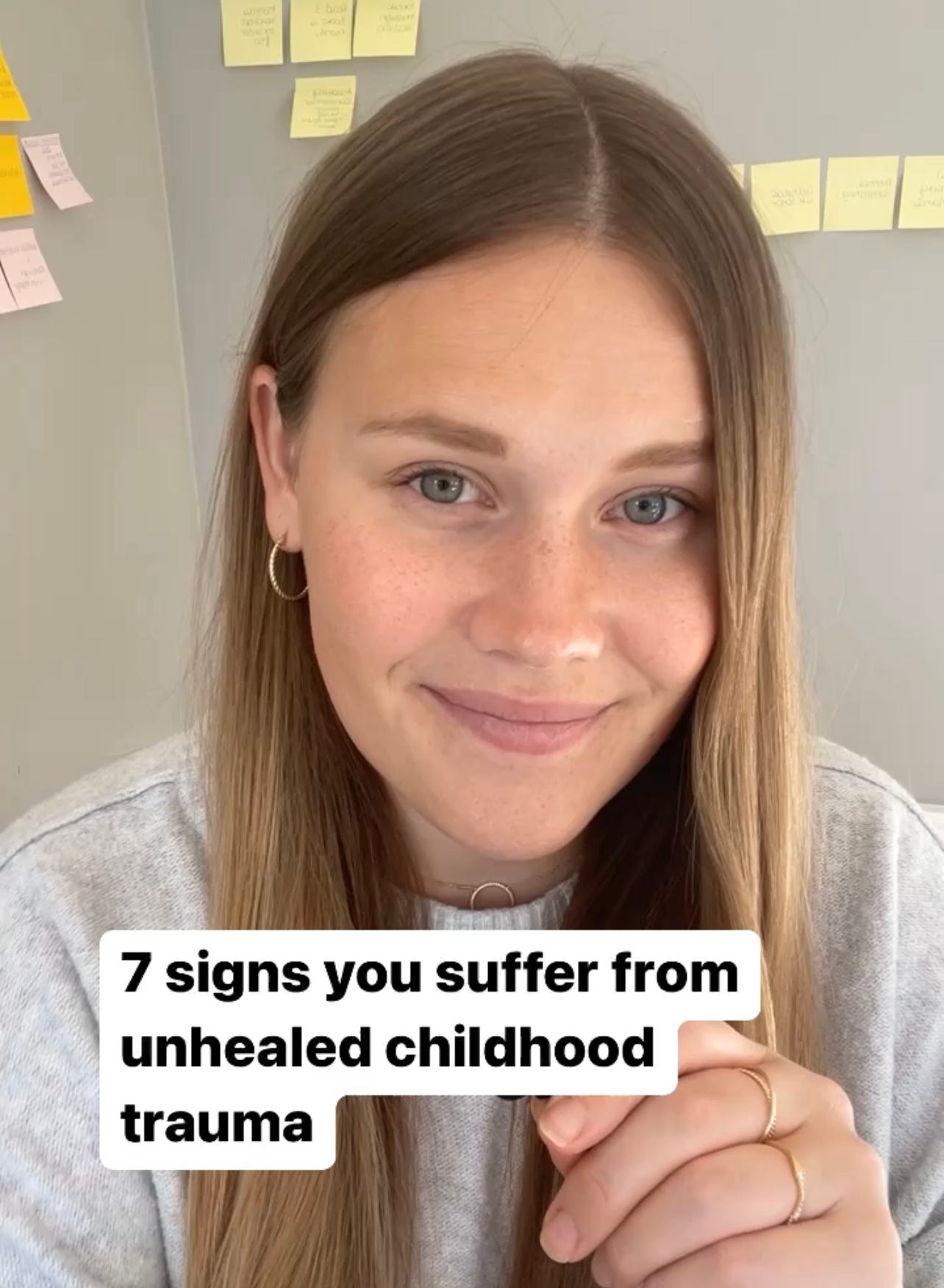7 Signs you Suffer from Unhealed Childhood Trauma
Becoming aware of the signs that we have unhealed trauma leads the way to healing our traumas and living a more healthy and happier life.
In today's post, I'm exploring signs that you're affected by past unhealed childhood trauma:
You struggle with people-pleasing.
You often fear that you'll be abandoned.
You over-apologize.
You get easily startled.
You tend to want to fix people.
You're disconnected from your true self.
You tend to over-explain yourself.
Before we jump into deep diving into each point, I want you to know that there are many different signs someone struggles with unresolved trauma. Not every point has to apply to you to identify that unresolved trauma is affecting you. It is important to seek professional help if you are experiencing symptoms of trauma, as these symptoms can interfere with your quality of life and overall well-being.
The following information is for educational purposes only. Remember that I am not an expert on you and that this content is for general consumption.
That said, I want to jump right into the topic of trauma, what it is, how it affects us and why it's important to explore and heal to move on and live in the present moment.
Understanding the Subjectivity of Trauma and Its Effects on our Well-Being:
Trauma happens to us when we experience deeply disturbing or distressing experiences, which can have long-lasting effects on our physical, emotional, or psychological well-being. What's important to understand is that trauma is subjective, meaning that what may be traumatic for one person may not be for another.
What is or isn't traumatic depends on many factors, for example, the severity of the event, the support system we have in place, the amount of time we are exposed to what's distressing, and many more.
That's why there are different levels of trauma. One can experience a severely distressing situation once and suffer from trauma. At the same time, someone else might experience less distressing events repeatedly and also suffer from trauma. What's important is that, big or small, physical or psychological, trauma leaves a wound that needs healing.
Now having a better understanding of what trauma is, let's dive deep into each point I make in today's post:



